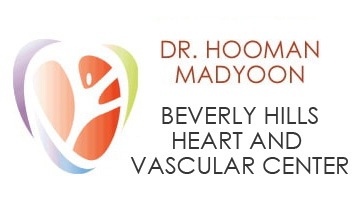Diet and exercise play important roles in managing heart disease. Cardiovascular health can be improved with an appropriate diet and the correct form of exercise. Although our bodies are different, the heart remains crucial, so it’s important to do all you can to prevent and manage heart disease.
With various exercise routines, individuals may have a lower risk of developing cardiovascular diseases and other issues such as coronary artery disease, heart failure, or stroke. Diet can also help manage heart disease if your food intake consists of vegetables, whole grains, and fruits.
How Diet and Exercise Can Manage Heart Disease
Lifestyle changes can impact those diagnosed with heart disease. One aspect of managing heart disease includes lifestyle changes. Introducing diet and exercise into your life can improve cardiovascular health.
Diet and exercise modifications help manage heart disease by reducing the risk of developing cardiovascular issues. Exercise improves the efficiency of blood vessels and the heart. In doing so, the strain on the cardiovascular system is reduced. With a responsible food intake, blood pressure can be lowered, reducing the risk of heart problems.
Managing Heart Disease With Exercise
According to the National Library of Medicine, cardiovascular diseases remain a leading cause of morbidity and mortality worldwide. Lifestyle interventions are encouraged, including increased physical activity.
The benefits of exercise consist of:
- Reducing inflammation throughout the body
- Lowering the risk of developing diabetes
- Maintaining a healthy body weight
- Lowering blood pressure
- Reducing stress hormones
- Reducing the total level of cholesterol
- Reducing the risk of stroke
Exercise improves the muscles’ ability to extract oxygen from the blood, reducing the need for the heart to pump more blood to the muscles. The heart rate is slowed, and blood pressure is lowered.
Exercise helps control the risk factors for heart disease. It is recommended that individuals exercise for at least 30 minutes, 5 times a week. Several types of exercises are beneficial, including aerobic and resistance training.
Exercises to help manage heart disease include:
- Yoga
- Jogging
- Moderate Weightlifting
- Pilates
- Biking
- Swimming
Each of the above exercises can manage heart disease, relieve symptoms, and reduce stress on the body and the heart.
Managing Heart Disease With a Healthy Diet
Maintaining a healthy diet is another important way to manage heart disease and control blood pressure. Individuals can adopt a heart-healthy diet by reducing their intake of saturated and trans fats.
A healthy heart also maintains cholesterol levels and prevents the formation of plaque in the arteries. Certain diets to follow include the Mediterranean, DASH, and plant-based diets.
When managing heart disease with diet, choose foods high in magnesium, potassium, and calcium, and select those low in sodium. Specific food options to consider include:
- Fatty fish
- Fruits
- Whole grains
- Nuts
- Seeds
- Vegetables
The above foods have anti-inflammatory properties and can lower blood pressure. The healthy food options above also promote cardiovascular health.
Risk Factors for Heart Disease
Without lifestyle interventions, several risk factors contribute to the development of cardiovascular diseases. Some of the risk factors contributing to heart disease include:
- Obesity
- Diabetes
- Stress
- Hypertension
- Excessive alcohol consumption
- Physical inactivity
- Dyslipidemia
- Stress
- Smoking
- Unhealthy diet
Thankfully, you can reduce the risk of heart disease by:
- Adopting a healthy diet
- Quitting smoking
- Maintaining a healthy weight
- Engaging in regular physical activity
- Managing stress
Those continuing to struggle with managing heart disease should seek treatment.
Find Treatment to Help Manage Heart Disease
You can find treatment options and helpful advice at the Beverly Hills Heart and Vascular Center. Our state-of-the-art technology and imaging allow us to help individuals find the best treatment for their cardiovascular condition. Contact us today to speak with one of our professionals and learn more about managing heart disease.

